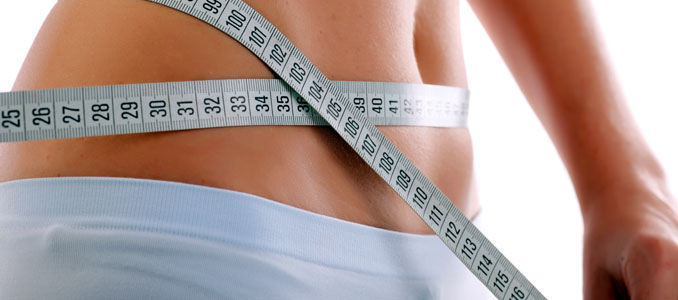The Role of Progesterone Therapy for Weight Loss
There are many different reasons why people gain weight – overeating, choosing the wrong foods, stress, injury, illness, inactivity, and even hormonal changes. It is this last one, imbalanced hormone levels that will be discussed in this report – specifically, progesterone.
The use of progesterone therapy for weight loss is intriguing to many individuals as this is not something that has been blasted in the media or focused on during medical TV shows. Most people do not pay attention to progesterone levels because they are centered more on learning about testosterone or estrogen therapies, as well as human growth hormone to help put their bodies back on the right track.
There is no direct progesterone weight loss diet, per se. You probably won’t find a diet book called the Progesterone Diet on bookstore shelves. What you can find is information about the use of progesterone therapy and weight loss from the doctors here at National HRT. We provide clear and precise information on a variety of different types of hormone treatments and their uses so that men and women have the facts needed to make viable choices in their own lives.
The biggest issue here is that low levels of progesterone often translate to higher levels of estrogen which is responsible for the accumulation of belly fat. Let’s discuss this subject in detail in the next section below.
Progesterone Decline and Estrogen Dominance Roles in Weight Gain
Estrogen dominance simple means that estrogen is the dominating hormone in the body when looking at its level in comparison to progesterone and testosterone. Although women will have much lower levels of testosterone in their bodies than their male counterparts, this particular hormone is no less important for them, as well. As progesterone levels fall, they can no longer balance out the estrogen in the body. Estrogen causes the growth of fatty tissue, particularly in the abdomen.
What turns this into a vicious cycle is the fact that fat cells manufacture estrogen, increasing this imbalance even further. The use of progesterone for weight loss helps to bring a necessary balance back into the body by increasing progesterone levels so that estrogen no longer dominates hormone production.
Another problem associated with estrogen dominance is insulin balance. Higher levels of estrogen can lead to an increase in insulin release. This can then cause sugar cravings that can add to caloric intake and further fat retention. Many women are familiar with the sugar cravings that accompany PMS, and this is due to the changing hormone levels in a female’s body during this time of the month.
The correlation between progesterone therapy and weight loss is partly due to the fact that this balancing of hormone levels can help control the release of excess insulin. Since low progesterone levels affect the liver, causing that organ to increase the amount of TBG (thyroid binding globulin) that is produced, binding it to thyroid hormones and prohibiting them from being properly used by the body. This can result in hypothyroidism.
Benefits of Progesterone Therapy for Weight Loss
You are just now beginning to see the connection between progesterone treatment & weight loss. Progesterone is a hormone that also helps to reduce inflammation in the body. That is why it is often given intravenously after severe head trauma accidents to minimize inflammation. In its role as an anti-inflammatory, progesterone helps the brain receive leptin, a hormone that regulates appetite to avoid overeating.
Progesterone is also a natural diuretic which is why women with higher estrogen levels tend to retain fluid more than usual. The use of progesterone therapy can reduce abdominal bloating.
We are often asked does progesterone therapy cause weight gain, and the answer here is no, if anything it will help to reduce excess fat. The final way that this hormone provides benefits for fat loss is by improving overall sleep. Progesterone brings its natural calming effects to the brain, quite the opposite of estrogen which has an excitatory effect in this area, causing women with estrogen dominance to have restless sleep patterns.
When you are sleep deprived, your body also tends to produce higher levels of the stress hormone cortisol, which signals the antithesis to leptin – ghrelin to increase in production. Ghrelin is the hunger hormone that stimulates the need to consume a higher level of calories. In addition, sleep is when the body releases the majority of growth hormone needed for the day. Growth hormone aids in metabolic function that will allow the body to convert food into fuel rather than fat.
Before beginning any type of hormone treatment, it is crucial to speak with a hormone replacement therapy specialist to get blood analysis of your vital chemical levels to ensure that the proper treatment is being prescribed. Under no circumstances should progestin be confused with progesterone. Progestin is a synthetic version of progesterone that will not relieve the symptoms associated with estrogen dominance. Instead, there could easily be a worsening of the problems, including weight gain and fat retention.
Can Progesterone Cream Help You to Lose Weight?
For women and men, progesterone cream is one of the most widely recommended forms of progesterone therapy during menopause and andropause. Bioidentical progesterone is synthesized from either wild yam or soy, but consuming either of these foods will not help you lose weight because the body cannot convert them into progesterone. Only after they have been biologically changed into a usable form of progesterone that the body can accept will they provide the necessary benefits.
Here are some answers to frequently asked questions about progesterone and weight loss:
- Can progesterone cream help me lose weight if I do not have a hormone deficiency?
The interesting thing about hormone supplements is that they only work to bring positive benefits when a person has an actual deficiency. Hormone levels fluctuate, but they still have natural ranges for what the body requires. Increasing the levels beyond that point can bring side effects rather than positive benefits, including for weight loss. Only if you are deficient in progesterone will this hormone help you to lose weight.
- Can progesterone cream make you gain weight?
Although there is very little chance of side effects, weight gain in the early stages of progesterone therapy is a possibility for some people, although not very common. Menopause and andropause both tend to put weight on in the abdomen, which naturally increases estrogen levels due to the testosterone converting enzyme aromatase secreted by belly fat.
As the hormone levels balance out, most people begin to see a decline in belly fat and an increase in lean body mass. While the numbers on the scale may not change, the body’s appearance will as fat melts away, and lean muscle takes its place.
- Is there a weight loss diet that goes with progesterone therapy?
Progesterone use is not a weight loss program, and no particular diet accompanies this treatment. To help your body lose excess fat while on any hormone therapy, the best advice is to exercise at least 3 or 4 times a week and consume a well-balanced diet of natural foods.
The more you can avoid sugar, fried foods, and empty carbohydrates (white processed bread, baked goods, and packaged foods) the better off you will be. Aim for heart healthy fats, fresh fruits and vegetables, nuts, seeds, and grassfed and free range protein options.
Contact National HRT to learn more about the right treatment for your needs. Consultations are always confidential and free of charge.
- Progestin-only contraceptives: effects on weight Laureen M Lopez, Shanthi Ramesh, Mario Chen, Alison Edelman, Conrad Otterness, James Trussell, and Frans M Helmerhorst Cochrane Database Syst Rev. Author manuscript; available in PMC 2017 Aug 28.Cochrane Database Syst Rev. 2016; (8): CD008815. Published online 2016 Aug 28.
- LiveStrong
- health central
- Effect of Postmenopausal Hormone Therapy on Body Weight and Waist and Hip Girths Mark A. Espeland Marcia L. Stefanick Donna Kritz-Silverstein S. Edwin Fineberg Myron A. Waclawiw Margaret K. James Gail A. Greendale The Journal of Clinical Endocrinology & Metabolism, Volume 82, Issue 5, 1 May 1997, Pages 1549–1556,





